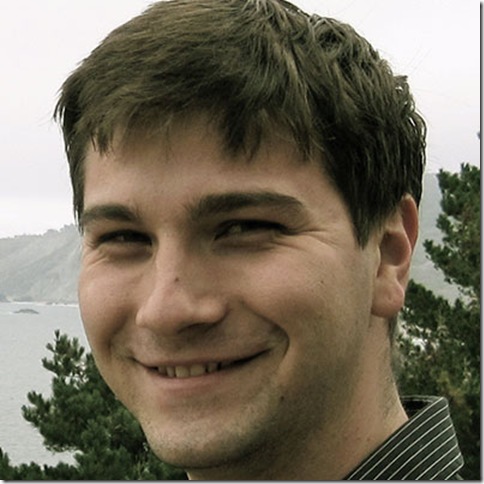A young American composer’s tribute to Igor Stravinsky made a remarkable impression during the opening concert last weekend of the Palm Beach Chamber Music Festival’s 24th summer season.
San Francisco-based Stefan Cwik, not yet 30 years old, composed his Eight Miniatures for the Bassoon Chamber Music Composition Competition in 2010, and it was easy to hear Sunday afternoon at the Crest Theatre in Delray Beach why it was one of the prize-winners.
Scored for flute, violin, bassoon and piano and filled with references to Stravinsky’s music, the Eight Miniatures is itself a little neoclassical gem, in which the Julliard-trained composer has absorbed the Stravinsky language so well that it speaks naturally, rather than sounding like a series of quotations. The performers — flutist Karen Dixon, pianist Lisa Leonard, bassoonist Michael Ellert and violinist Mei Mei Luo — delved into this work with obvious commitment and enjoyment, making each piece in this cycle of shorts sparkle.
Amid the sheer pleasure of hearing such a finely crafted piece, there were specific high points, such as the third movement (“Interlude”), in which a smooth, suave melody in the flute is interrupted by a short statement from the violin echoing L’histoire du Soldat, after which the mood of placid beauty returns. The musicians expertly handled the contrast between the two styles, underlining how organically Cwik is able to fashion his material.
Overall, the piece was not only a fitting tribute to Stravinsky, it had the same compositional profile: Wit, remarkable instrumental variety, and a constant level of high intelligence that led the listener on a fascinating auditory journey. If the festival organizers decide to commission a composition next year for its 25th anniversary, they would do well to knock on Stefan Cwik’s door.
This first program in the four-concert series also featured another American work by a contemporary composer of an older generation, Eric Ewazen. One of the best-known neoromantics writing today, Ewazen has a sweet, pleasant melodic gift that he skillfully weaves into a compositional language that looks back but is still undeniably of its time. His Trio for Trumpet, Violin and Piano, written in 1992, shows all of his stylistic strengths in an unusual and compelling format.
Trumpeter Marc Reese, joined by his wife, pianist Leonard, and violinist Dina Kostic, was the featured player here, and Sunday afternoon he was in fine form. He has a large, cornet-like warmth to his sound, and that helped give the three instruments a mellow, cohesive blend. Leonard’s work was propulsive and strong as always, and Kostic played with firmness and elegance.
This performance had a smooth quality, well-buffed at the edges, and the three musicians did a good job of maintaining instrumental balance. The second (Allegro molto) and third (Adagio) movements could have used some more contrast: More fire in the rhythmically tricky second movement, and more mystery and tenderness in the third.
The concert opened with a rarity, the Trio for Flute, Oboe and Bassoon (Op. 86) of Julius Röntgen, a German Romantic whose career was in the Netherlands, where he helped found the Amsterdam Concertgebouw. This is a charming, interesting piece, direct and sunny, and Röntgen is canny enough to get a lot of different colors out of his small ensemble.
Dixon and Ellert were joined by oboist Erin Gittelsohn for this trio, and all three played with impressive individual profiles. But the ensemble sounded somewhat shaky, particularly in the first movement (Allegretto con spirito). Here, Röntgen plays amusingly with a motif of three repeated notes that are traded between the players and which come back in a surprising register, or a sudden accidental. That ends up being a central anchor of the structure, and in this performance, it sounded as though it was sometimes coming in too soon, sometimes too late, so that the movement felt off-kilter. It’s the kind of thing that would take more rehearsal, perhaps, to get just right.
The final work Sunday was the beautiful Terzetto for two violins and viola (B. 148) by Antonin Dvořák. Too rarely programmed, it was a treat to hear this lovely piece end the concert, especially played as well as it was by Luo, Kostic and violist René Reder. The three women had a fine feel for Dvořák’s idiom, with its enchanting mix of first-class melody and a delightful affinity with Czech folk styles. Perhaps best of all was the third movement, a catchy dance that had members of the sizable house at the Crest smiling and bobbing along.
The Palm Beach Chamber Music Festival continues Friday, Saturday and Sunday with the second concert in the series. Works by Beethoven, Brahms, Telemann, Théodore Dubois and Morton Gould are scheduled. Concerts are at 7:30 p.m. Friday at the Persson Recital Hall at Palm Beach Atlantic University, 7:30 p.m. Saturday at the Eissey Campus Theatre in Palm Beach Gardens, and 2 p.m. Sunday at the Crest Theatre, Delray Beach. Tickets are $25. Call 547-1070 or visit www.pbcmf.org.
